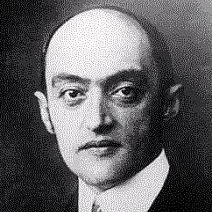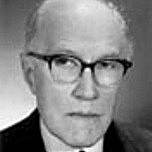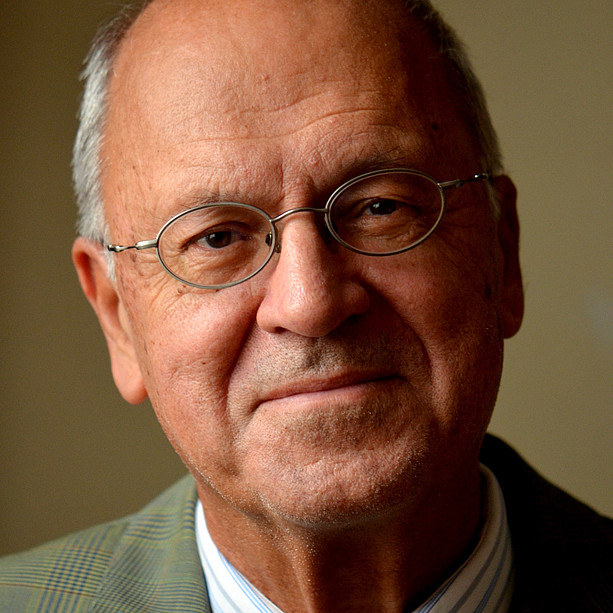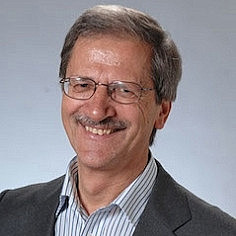History of the Department
Sociology at the University of Graz - the history and development of the department to date
Ludwig Gumplowicz (1838-1909) was an academic at the University of Graz as early as the 19th century who championed the then new subject of sociology. This legal scholar (habilitation for general constitutional law in 1876, full professor of administrative theory and Austrian administrative law in 1893) published numerous sociological writings (including "Grundriss der Sociologie" in 1885), which were also translated into several languages and attracted international attention.
On the occasion of Gumplowicz's 70th birthday, a "Sociological Society" was founded in Graz in 1908 - the second oldest such organization in the German-speaking world after the Vienna Sociological Society (1907).
Between sociology and political economy
Joseph A. Schumpeter (1883-1950), who was appointed Professor of Political Economy in Graz in 1911, also carried out explicitly sociological studies. Schumpeter was not only briefly Austrian Finance Minister in 1919, but - after a stopover in Bonn - worked at Harvard University from 1932 and was one of the most important economists of the first half of the 20th century. In 1918, his essay on "The Crisis of the Tax State" appeared in the series "Zeitfragen aus dem Gebiet der Soziologie" published by the Graz Sociological Society. In 1919, Schumpeter published an analysis entitled "On the Sociology of Imperialisms", and the essay on "The Social Classes in an Ethnically Homogeneous Milieu", published in 1927, also drew on ideas from Schumpeter's time in Graz.
Although sociology in Graz was closely linked to law and economics, the Faculty of Philosophy at the University of Graz was the first institution to establish a "Seminar for Philosophical Sociology" in 1920, which emphasized the humanities perspective.
Establishment after the Second World War
The establishment of sociology at the University of Graz after the Second World War is closely linked to Johann Mokre (1901-1981), who was appointed full professor of law and political science after returning from emigration in 1949 and was responsible for teaching sociology in addition to philosophy of law and general political science, so that sociological dissertations could also be written from 1949. Mokre also endeavoured to promote sociology at an organizational level, for example by founding a "Styrian regional group" of the "Austrian Society for Sociology" in 1951.
Establishment and development of the Department of Sociology
The founding of the "Institute for Empirical Sociology and Statistics" at the Faculty of Law and Political Science in 1958, which was divided into an Institute for Statistics and an Institute for Sociology in 1965, also goes back to Mokre's initiative. In 1968, Kurt Freisitzer (1928-2010) was appointed as a full university professor of general sociology and social research, who held the office of Rector of the University of Graz from 1981-1983.
International orientation of the institute
With the appointment of Karl Acham (1974), a full professorship for "Sociological History of Ideas and Science Studies" was created (after 1981 "Department of Sociological Theory, History of Ideas and Science Studies"). In 1976 Karl Acham and Kurt Freisitzer founded the "Society for Sociology at the University of Graz", which to this day contributes to the international orientation of sociology in Graz through its intensive lecturing activities.
Between theory and empiricism
In 1985, Max Haller was appointed as the third full professor and the department of "General Social Analysis and Methods of Empirical Social Research" was founded. This established the basic orientation of sociology at the University of Graz, which can be characterized as a unique feature, at least in Austria: On the one hand, there is a theoretical-historical focus - which was reinforced in 1987 by the founding of the "Archive for the History of Sociology in Austria" - and on the other hand, empirical social research is given broad scope, from various fields of applied sociology to international comparative studies.
Since the new faculty structure introduced by the University Organization Act (UOG) in 1975, the Institute of Sociology has been part of the "Faculty of Social and Economic Sciences". At the teaching level, the aim in the following years was to establish a regular degree course in sociology, which was initially achieved by establishing a humanities branch of study (diploma course) in 1986, which was replaced in 2003 by a bachelor's and master's degree course in social and economic sciences, which was converted into a bachelor's and master's degree course in 2007.
From the 1990s onwards, there were major changes in the organizational structure of Austrian universities, which also affected the employment status of the staff and the structure of the research units. The former departments were gradually replaced by research foci, which make the content orientation of the institute visible.In addition to the full professors, the development of the Institute was also significantly influenced by the associate professors Gerald Angermann-Mozetič, Christian Fleck, Peter Gasser-Steiner, Gerhard Grossmann, Franz Höllinger, Helmut Kuzmics and Manfred Prisching.
With the appointment of Angelika Wetterer (2005), the Institute received the first professorship for gender sociology in Austria.
With the appointments of Stephan Moebius (2009), Klaus Kraemer (2010), Libora Oates-Indruchova (2015) and Markus Hadler (2016), the Institute of Sociology made important personnel decisions that have enabled the successful continuity of scientific research and academic teaching in Graz. A temporary professorship (Johanna Muckenhuber 2014-2019) temporarily supplemented the Institute's portfolio.
The following relevant publications on the history of sociology in Austria have been published by members of the Institute:
- Mozetič, Gerald (2011): Ludwig Gumplowicz - ein Grazer Pionier der Soziologie, in: Karl Acham (ed.): Rechts-, Sozial- und Wirtschaftswissenschaften aus Graz. Between empirical analysis and normative instructions for action: scientific-historical findings from three centuries. Vienna-Cologne-Weimar: Böhlau, pp. 433-448.
- Fleck, Christian (1993): A Marginal Discipline in the Making: Austrian Sociology in an European Context, in: Birgitta Nedelmann and Piotr Sztompka (eds.): Sociology in Europe: In Search of Identity. Berlin/New York: de Gruyter, pp. 99-118.
- Fleck, Christian (2010): Die Entwicklung der Soziologie in Österreich, in: Peter Biegelbauer (ed.): Steuerung von Wissenschaft? The governance of the Austrian innovation system. Innsbruck: Studienverlag, pp. 259-296.
The Institute of Sociology is also home to the Archive for the History of Sociology in Austria(AGSO). For its history, see:
- Reinhard Müller: It began ten years ago... The beginnings of the Archive for the History of Sociology in Austria, in: Archive for the History of Sociology in Austria. Newsletter (Graz), No. 13 (June 1996), pp. 13-24.





